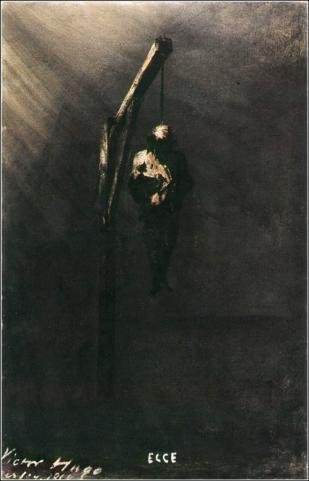From July to December I'll be working as an intern for the International Criminal Tribunal for the Former Yugoslavia (ICTY) in The Hague. During this time I hope to find the time to keep blogging, however, I wanted to make a slight change to the subject I've been writing about.
At the moment my purview is specifically state sanctioned executions. I wanted to change it slightly to include extra-judicial killings. This essentially includes genocide (the ultimate international crime) and mass murder committed by a state, a state body, the army or police. I have a strong interest in International Humanitarian Law, and mass executions are a horrifying, tragic and very real element in modern warfare.
I won't be including other warcrimes, for example torture, because then I think this blog will just start getting far too broad. I want to stick to state sanctioned and extra-judicial killings.
The obvious reason for this inclusion is that for the next 6 months I'll be working heavily with cases regarding war crimes during the Bosnian-Serbian war. As with my internship in New Orleans, I won't be able to talk about specific details of cases that I am working on, but I will be eager to write about the concept of warcrimes, the capture and trial of war criminals and any form of murder directly or indirectly undertaken by a government, government body, police or army outside the purview of the law.
During my visit to the Jewish Holocaust Museum in Berlin I saw a quote on the wall that is almost like a introduction to the horrifying expositions that follows, and it's a quote from Primo Levi an Auschwitz survivor and prolific writer.
"It happened, therefore it can happen again: this is the core of what we
have to say."
It occurred to me that although the Holocaust has not been repeated in history on the same scale, it certainly has been recreated in part through numerous conflicts, Sudan, Rwanda, Cambodia, Former Yugoslavia. Even with the creation of the International Criminal Tribunals for Rwanda and Yugoslavia, it still occurs. What needs to be done to stop it from continuing? The face of war has changed, and even though it is unlikely that a state will ever adopt a calculated policy of mass extermination like Hitler and the Nazis did, there are still conflicts in which massive amounts of non-combatants are murdered. Warcrimes Tribunals such as the one I will be working with have been extremely successful in holding warcriminals to account for crimes against humanity, but a more serious question is what more can be done to ensure that these crimes aren't allowed to occur at all, and when they do, how best to prosecute them.
Once I'm settled in The Hague I'm sure there will be lots on my mind.
Quote of the day:
"I am constantly amazed by man's inhumanity to man."
- Primo Levi

“The perpetration by Milan Lukić and Sredoje Lukić of crimes in this case is characterised by a callous and vicious disregard for human life,” Judge Robinson, presiding said...seems to be quite fitting to your post.
ReplyDelete~Meg
Thanks for your post Meg.
ReplyDeleteI was sitting in the viewing gallery when the judgement was handed down. Were you also there?
The way Judge Robinson read the judgement so slowly and deliberately, with his deep voice, really added to force of the decision he made and the sentence he handed down.